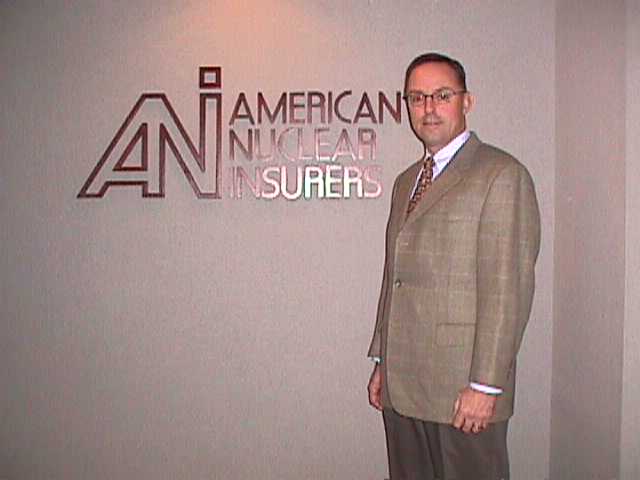ANI
Looks to Telecommuting to Optimize Company Resources and Retain Long-Term Expertise
 West
Hartford-based American Nuclear Insurers (ANI) recently launched a formal telecommuting
pilot program for their engineering department. The company performs onsite
assessments and inspections of nuclear facilities and provides insurance for
the commercial nuclear energy industry.
West
Hartford-based American Nuclear Insurers (ANI) recently launched a formal telecommuting
pilot program for their engineering department. The company performs onsite
assessments and inspections of nuclear facilities and provides insurance for
the commercial nuclear energy industry.
"We are a very close knit group that requires a high level of interaction
and communication to make things come together," account engineer, Mark
Poirier said. "Communication is the key in our organization. One thing
telecommuting cannot do is breakdown the communication within the company or
with our customers. We're watching that very closely and we've been very successful
with communications in this pilot program so far." As a matter of fact,
communication has served as a key component in ANI's work to formulate their
telecommuting program.
Poirier was assigned
a year ago to develop a telecommuting program for the engineers. "At ANI,
we looked at what was happening at the company, why we would want to have telecommuting,
and what our goals were." Poirier said the number one reason why they would
want to have telecommuting was to optimize their company's resources in the
long run.
One of the things
ANI saw when they looked at what was happening at the company was that the knowledge
and expertise of their engineers could not be easily replicated in new employees.
As a result, retention of ANI's experienced engineers became a goal for having
a telecommuting program in place.
Poirier said that
it wasn't unusual for the engineers to be away at least one week a month for
the company. "We felt we could offer telecommuting to our engineering employees
when they're back in Connecticut as an option to help balance their work and
life in a positive way." Since launching the pilot program, participating
engineers have been doing document preparation and report writing on the two
days per week they telecommute.
Poirier contacted
Telecommute Connecticut! and after learning about the customized services offered,
ANI joined with Telecommute Connecticut! and began the program development process
with a human resources specialist, a telephony consultant, and a technology
specialist. They began the formal development of ANI's telecommuting policy,
teleworker agreement, telephony & technology needs analysis and the training
of participants began.
"Throughout
this development process meetings were held at different times with the staff
an ANI and Telecommute Connecticut. "Our director of information services
and our vice president of human resources met with Laura and Jim (of Telecommute
Connecticut!), and we brought in some of our engineers to contribute their thoughts,
ideas, and perceived needs," Poirier said. "The telephony people met
with our engineers and the technology report we received from them was very
helpful to us in our decision-making process by identifying what communications
options we had available to us to support remote access."
Once the telecommuting
policy and agreement was developed and the program was launched, Laura Collins,
human resources consultant for Telecommute Connecticut!, met with ANI's staff
several times for training and for facilitating discussions as the telecommuting
pilot program got underway. "She came to one of our monthly engineering
meetings and did training, then she came another time to answer and ask questions
of the staff as to how it was going," Poirier said. "She was indispensable
to us as a neutral party."
Poirier explained
that the success of the telecommuting pilot program was a team effort involving
the staff at ANI working with Telecommute Connecticut and its consultants. "I
would characterize involvement of the staff in the process as the valuable element
in the development of the telecommuting program," Poirier said. "I
think the Telecommute Connecticut! team really helped to facilitate communication
and interaction here at ANI," he added. "We might have a 'check-up'
with Telecommute Connecticut! six months from now to see how we're doing; that
would be very helpful to us."
 West
Hartford-based American Nuclear Insurers (ANI) recently launched a formal telecommuting
pilot program for their engineering department. The company performs onsite
assessments and inspections of nuclear facilities and provides insurance for
the commercial nuclear energy industry.
West
Hartford-based American Nuclear Insurers (ANI) recently launched a formal telecommuting
pilot program for their engineering department. The company performs onsite
assessments and inspections of nuclear facilities and provides insurance for
the commercial nuclear energy industry.